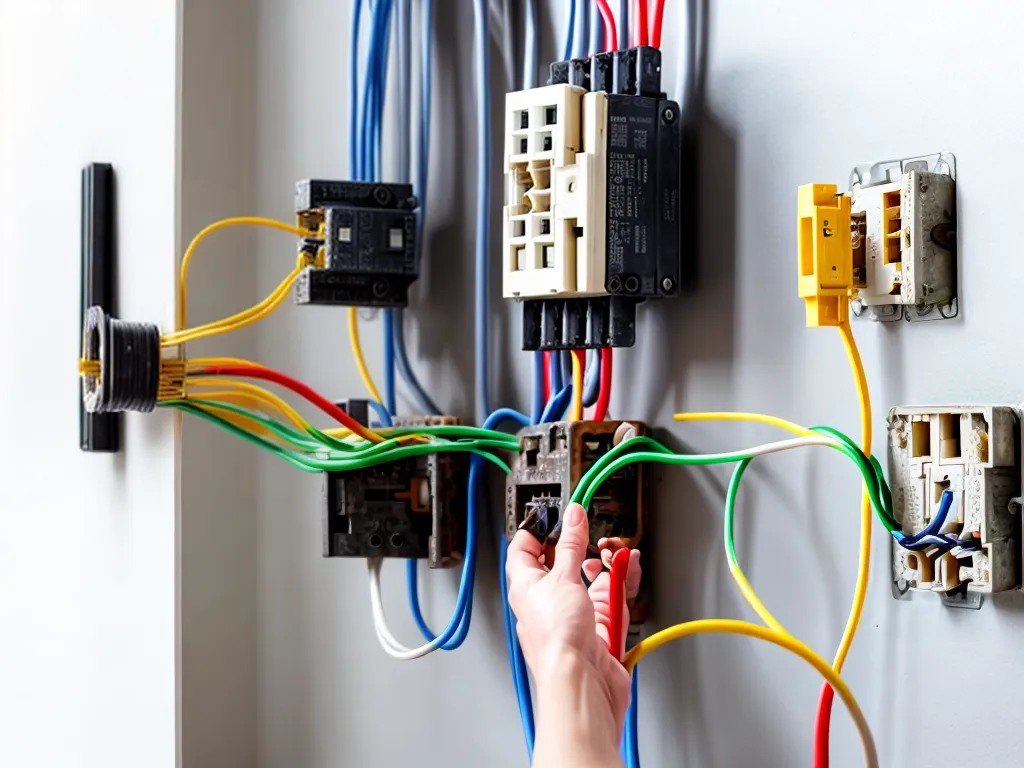
Installing or upgrading the wiring in your home can be an expensive endeavor. However, there are several unconventional methods you can use to reduce wiring costs without compromising quality or safety. In this article, I will provide an in-depth look at strategies to save money on home wiring projects.
Learn Basic Electrical Skills
One of the best ways to reduce wiring costs is to take on some of the basic work yourself. While complicated electrical projects should always be left to professionals, there are parts of the wiring process a homeowner can handle.
Simple Switch and Outlet Installation
Installing light switches, outlets, and other simple wiring tasks are well within the DIY realm. With some basic instruction on electrical safety and proper techniques, you can take care of minor upgrades and repairs. This allows you to save on electrician markup and service fees.
Troubleshooting and Testing
Learning to use a multimeter to test circuits and troubleshoot issues can save you service call fees. You can often track down and fix minor problems like faulty connections and bad breakers. Understanding basic electrical troubleshooting empowers you to handle small issues on your own.
Knowledge Reduces Costs
The more electrical knowledge you gain, the more ways you can reduce wiring project costs. Even if you still hire an electrician for major work, your expanded skillset allows you to assist with prep and simple tasks to save money.
Shop Discount and Salvage Materials
The wiring materials themselves can be a major project cost. However, you can source quality supplies at discounted prices if you know where to look.
Discount Electrical Supply Stores
Big box home improvement stores are convenient, but you can find better deals at discount electrical supply retailers. They offer bulk pricing and purchase options professional electricians use to reduce material costs.
Habitat for Humanity ReStores
Check out Habitat for Humanity ReStores in your area for heavily discounted new and used building materials. You can often find leftover spools of wire, boxes of staples, switch plates, and other electrical supplies at a fraction of retail pricing.
Online Listings
Scour classified ads and online listings like Craigslist for locals selling excess electrical supplies. If a large project nearby is wrapping up, you may find handlers liquidating materials at clearance prices.
Buy in Bulk
Any wiring supplies you do purchase, buy in bulk. The cost per foot, box, or unit will be considerably less than buying single pieces or small packs. Coordinate with friends or relatives doing electrical work to make bulk purchases you can split.
Use Lower Cost Wiring Methods
How you run and secure the wiring itself can also present cost-saving opportunities.
Bundle Wires
Running multiple wires bundled together in a single conduit is cheaper than individual runs. Coordinate your wiring plan to allow for bundled runs to central boxes wherever feasible.
Use Metal Conduit
PVC conduit is common for housing runs, but metal conduit is actually better for lowering costs. The conduit itself is cheaper, and you can use it as the ground conductor, eliminating the need for a separate ground wire.
Staple Wires
Using insulated staples to secure wiring is far cheaper than installing cable trays or conduits for every run. Staple runs to framing where allowed by code for major savings on materials and labor.
Strategic Runs
Carefully plan wire runs to minimize distance and complications. Have your electrician map it out to avoid unnecessary time and materials.
Work With Your Electrician
Your electrician plays a major role in controlling overall wiring project costs. Working collaboratively with them on pricing, materials, and process can yield significant savings.
Provide Materials
Providing some or all of the necessary wiring materials yourself avoids electrician markup. Just be sure anything you supply meets required specifications. Discuss options with them.
Agree on Rates/Costs Upfront
Be clear about hourly, daily, or project rates and get firm quotes in writing before work begins. Understand additional charges like minimums, after hours, or rush fees.
Communicate Throughout
Stay engaged with the electrician throughout the process to ensure efficiency and avoid unnecessary work. Have them walk you through the plan and goals upfront.
Oversee and Assist
Supervise work intermittently and offer to help out with basic tasks or prep work if feasible. This gives you visibility into how time and materials are being utilized.
Key Takeaways
- Learn basic electrical skills to take on minor projects and repairs yourself
- Source discounted electrical supplies from salvage and surplus sellers
- Use lower cost wiring methods like bundling and metal conduit where possible
- Partner openly with your electrician on pricing, materials, and oversight
Implementing even a couple of these unconventional cost-saving methods can potentially reduce your total home wiring expenses by 15-20% or more. A little electrical know-how and smart planning goes a long way.